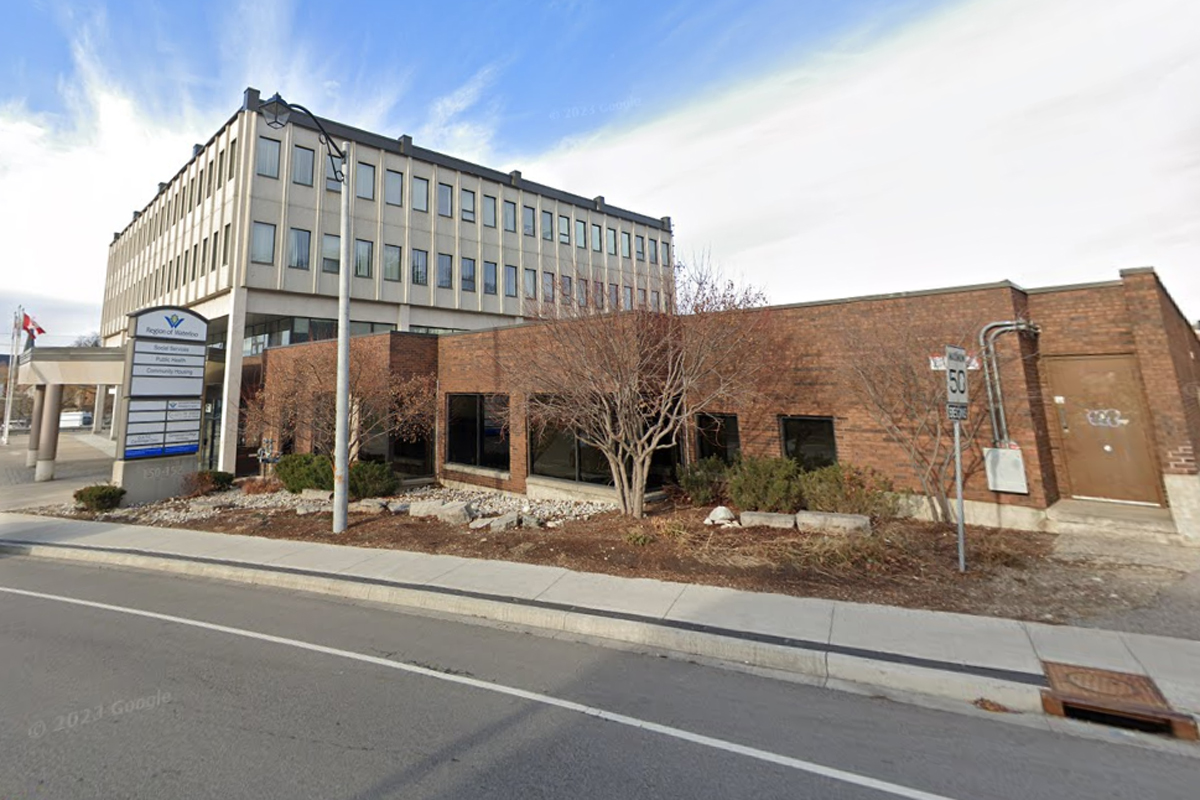After about a year of existence, the Region of Waterloo closed the unsanctioned tent city in the Galt area of Cambridge.

The encampment, which is located at 150 Main St., had it first tenant arrive last August before it ballooned to having close to 30 residents at one point, according to the region.
The numbers fell as low as seven in May when the region opened the hybrid shelter on Erb’s Road in Waterloo.
“There was three left early last week and then the final two took offers of shelter on Thursday afternoon and at that point, we closed the encampment,” commissioner of community service Peter Sweeney told Global News.
A fence has been erected around site of the encampment in the parking lot, which Sweeney says will now remain permanently closed, noting that it was not always a safe place for people to reside.
He said that some of the people moved to the site at Erb’s Road while others have moved to other shelters or transitional housing.
“We also know that some people left on their own accord and I fully acknowledge that some of those people have likely chosen to continue to live unsheltered,” he said.
“We need to turn our attention to getting to a point where that’s actually not something that people feel they need to do.”
While the unsanctioned encampment is now a thing of the past in Cambridge, the other major one in the area has been regenerating as of late. The camp on Victoria Street in Kitchener has had tents set up there since January 2022.
While it has been the region’s largest with more than 50 residents at times, that number dropped to the low teens in the spring of this year but began to climb again over the summer.
Sweeney noted that while living in the encampment can be dangerous and the tent city should not remain open, the region knows there are people who do not want to access system supports.
“So we focus our efforts in ensuring that, as the owner of that property, that property’s as safe as possible,” he said.
“We continue to be providing washroom facilities, providing sanitary facilities or clean up. That’s all ongoing.”
He said that people who offer supports, such as housing and healthcare, do access the site on a regular basis and try to build connections with those who are living there.
“What we saw in Cambridge is some people would say ’no’ four or five times and then change their mind,” he said.
“We just have to continue to focus on building one-to-one relationships, and that’s pretty hard.”
Leilani Farha, the global director of The Shift, an international initiative that advocates for the right to housing, told Global News that there are many reasons that those experiencing homelessness are not interested in moving to a shelter.
She noted that many shelters don’t allow pets, drugs or alcohol; some don’t allow men and women to stay together.
“We have an overrepresentation of Indigenous Peoples living in homeless encampments and many of them have said to me explicitly, ‘We do not want to live in shelters. Shelters replicate the colonial residential school system,’” Farha said.
“We’re asking people who are living in shelters to live by a whole set of rules that those of us who are housed could never live by,” Farha said.
Bigger picture, as the man in charge of community services in the area, Sweeney said the community is working on a plan to try to end chronic homelessness, while noting that the number of people who are in that situation has tripled over the past half-decade.
“Until we turn our attention and our resources and our willpower and our kindness towards ending chronic homelessness, these situations are going to continue to occur,” Sweeney said. “We’re looking to develop a plan to end chronic homelessness, which is the only path forward.
“And that means everybody in this community needs to have a safe, secure place to live.”
— with files from Global News’ Heidi Lee




Comments